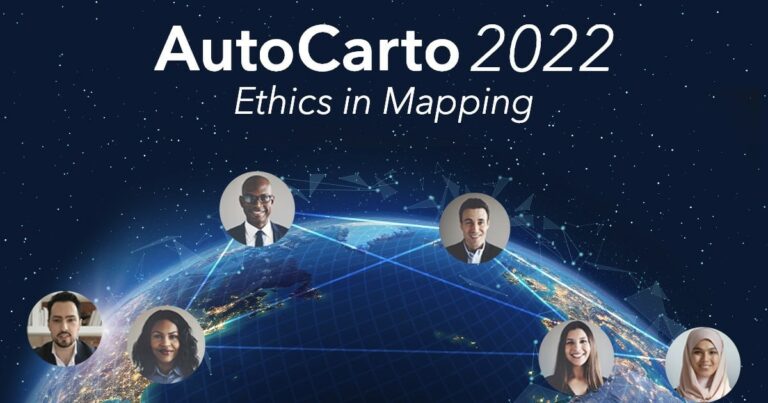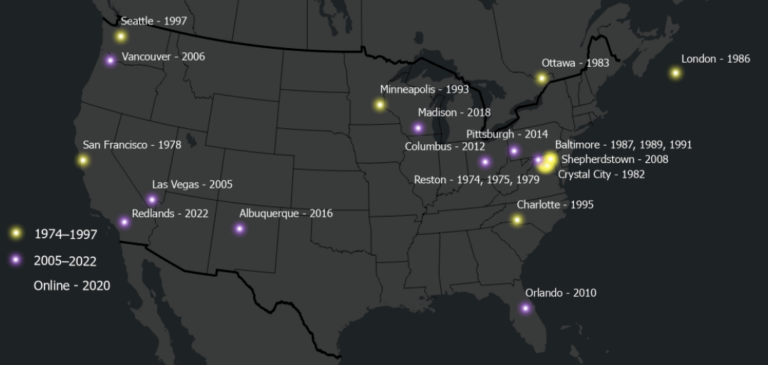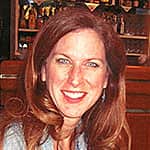AutoCarto 2022—the International Research Symposium, to be held November 2–4 on the Esri campus in Redlands, California—will highlight transformative thinking in cartography and geographic information science (GIScience). The symposium’s theme is “Ethics in Mapping: Integrity, Inclusion, and Empathy.”
Maps are ubiquitous, and tools for analyzing and representing spatial data are widely available. At the same time, ethical issues have arisen that relate to locational privacy, the power of maps for shaping public opinion and informing policy, opportunities for disinformation and misinformation through maps, and the abuse of data to fake reality or falsify locations. The cartography and GIScience community must address these issues with integrity, ethics, empathy, and equity.
AutoCarto 2022 will bring attention to ethical responsibilities we face in all aspects of our discipline, with conversations on the power of maps and the critical need for integrity and empathy in cartography and GIS. Submissions about all areas of cartographic and geographic information science are welcome—especially those related to this year’s theme. Categories include the following:
- Geoethics and Mapping
- Territorial Empathy
- The Power of Maps for Equity and Social Justice
- Geotracking and Social Responsibility
- The Potential of GeoAI for Good and Evil
- Storytelling for Empowerment and Action
- The Tension between Privacy and Social Responsibility
The deadline for submissions is June 1, 2022.

As an International Cartographic Association (ICA) Regional Cartographic Conference, AutoCarto 2022 will host representatives from the ICA, including President Tim Trainor and Secretary-General Thomas Schultz. Additionally, the ICA offers scholarships to attend the symposium for young scientists and professionals looking to advance their careers in cartography and GIScience. Scholarship applications for AutoCarto are due July 1, 2022.
With a long history of bringing together researchers and practitioners from academia, industry, and government agencies to share scientific advancements and explore relevant new ideas, the AutoCarto symposium series continues to be standard-bearer of transformational research in cartography and GIScience.
AutoCarto: A History
AutoCarto first convened in 1974, 15 years after the advent of automated cartography. Called the International Conference on Automation in Cartography, its intent was to bring together academic cartographers with government and private researchers.
A review of past AutoCarto symposia reveals the importance of these early gatherings. AutoCarto was the only event to bring together people working in automated cartography with those involved in the early development of GIS technology. The AutoCarto archives tallies 288 participants at the first symposium and nearly double that number at the second. The fourth symposium—held 1979 in Reston, Virginia—had a record 870 participants.

The symposium series was laid to rest in 1997 because, as a previous symposium chair said, the organizers believed they had “solved the problem of automating cartography.” By that time, 13 symposia had been held, and there were more automated mapping- and GIS-focused conferences to choose from, including:
- AM/FM, which began in 1978 and became GIS/LIS in the mid-1990; and
- GIScience 2000, which emerged from the National Center for Geographic Information and Analysis (NCGIA).
Additionally, in 1997, the Esri User Conference was relocated to the San Diego Convention Center to accommodate the increasing number of attendees, which had grown to around 6,300.
Throughout this period, the American Congress on Surveying and Mapping (ACSM) continued to hold conferences annually. Even though the American Cartographic Society—now the Cartography and Geographic Information Society (CaGIS)—was the second-largest member of ACSM, cartographers began to feel increasingly marginalized at these surveyor-dominated meetings. By the early 2000s, there were few opportunities for people working in automated cartography and the closely aligned, rapidly emerging field of geographic visualization to come together outside of the biennial International Cartographic Conference.
In 2005, when CaGIS seceded from the ACSM and became independently incorporated, it resurrected the AutoCarto symposium, recognizing that the gathering was still important to the scientists, academics, and practitioners who were evolving cartography and GIScience.
A Symposium for Today
Another eight symposia have been held since 2005, and AutoCarto continues to bring people together from around the world to share their work with other professionals in cartography and GIScience. In response to the global pandemic, AutoCarto 2020 was provided in an open-access format online and free of cost for all. In 2022, the symposium will be held in a hybrid format, combining the advantages of virtual gatherings with those of in-person attendance.
Just as the format of the symposium has changed, so too has the event’s focus over the years—shifting from automation in cartography to activities, advancements, and challenges at the intersection of cartography and GIScience. However, as Dean Edson, chair of the first AutoCarto conference, observed: “Things are going on in the field of cartography that were unthought of just a few years ago.” This holds true today.
But there is a tension between the challenges we face, the responsibilities we hold, and the opportunities we have for success. Our primary goal for AutoCarto 2022 is to advance ethical, inclusive, and empathic cartography and GIScience and inspire similar advancements in other disciplines.
For updates, follow CaGIS on Facebook, LinkedIn, and Twitter, or visit the main AutoCarto web page.

